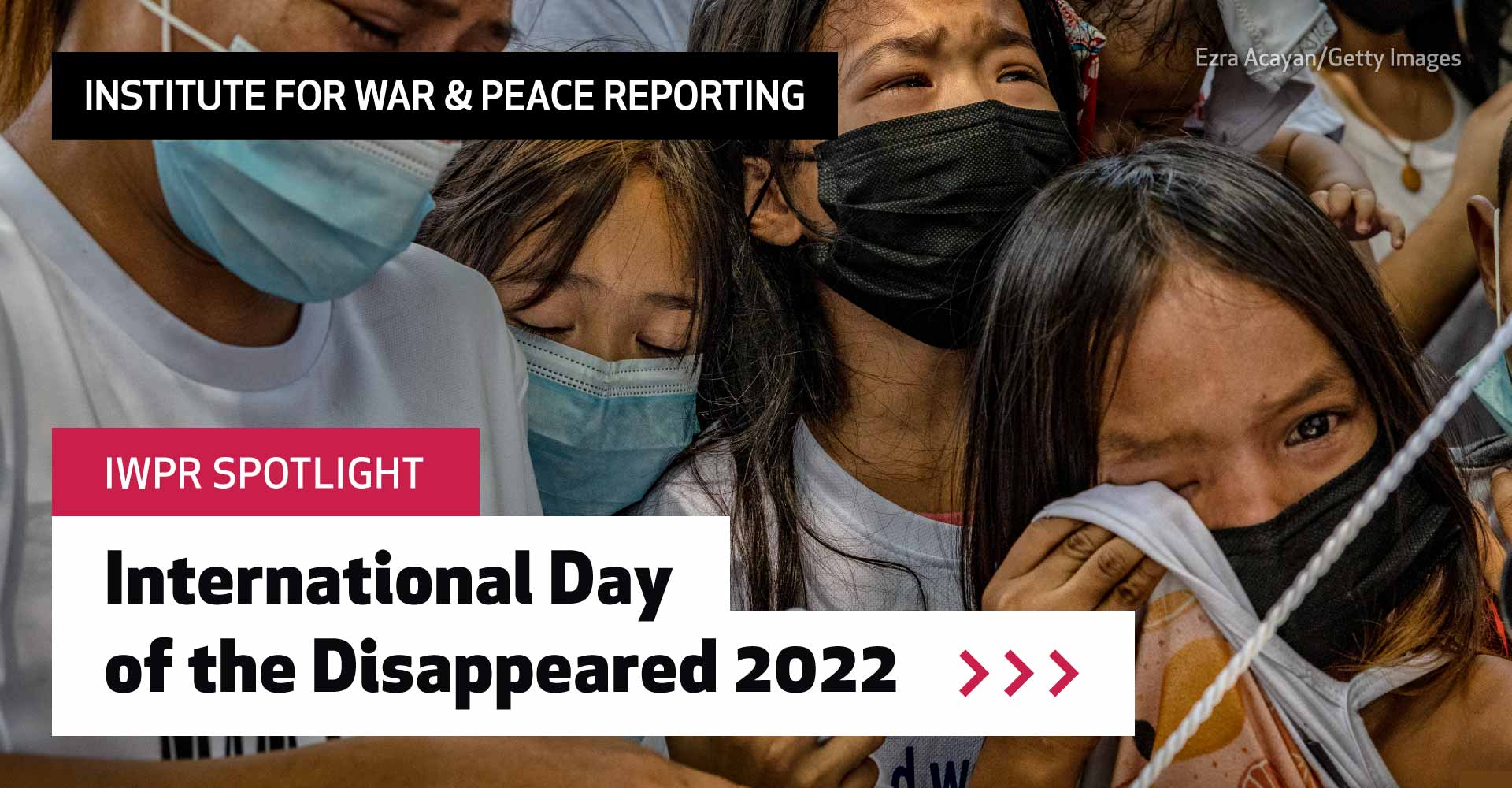Missing Persons, a Hidden Tragedy
Hundreds of thousands of people worldwide have disappeared due to conflict, disaster and crime. Many are never heard from again.
The worst is the not knowing.
In war zones, under dictatorships, in areas of lawlessness and unaccountability, people go missing. More accurately, they are the forcibly disappeared.
Victims vanish from their families and their society. Often, it is because of their roles – or their identity – that they have been seized or killed. Maybe they are an activist or a political opponent, a rival or a threat to nefarious business. Or they are from the wrong community, ethnic or language group.
Or they are in the wrong place at the wrong time.
The job of journalism at its most elemental is to serve witness, and to highlight the plight of the individual citizen against powerful forces impacting lives, hope and freedom.
They may be abducted and shot. They may be caught in the chaos of crossfire and seized. They may be detained, tortured, imprisoned, sold into slavery.
They may be alive, sweltering and tortured in a prison, or an ocean away, unable to escape. Or they may be dead.
If still alive, they live in fear, not only for themselves but with the knowledge that their whereabouts are unknown by their loved ones.
Enforced disappearances may be undertaken by officials or by military/security forces, or by militia or other non-state groups.
In all cases, it is a crime under international law.
IWPR works in areas at risk of enforced disappearance. The job of journalism at its most elemental is to serve witness, and to highlight the plight of the individual citizen against powerful forces impacting lives, hope and freedom.
To mark the UN’s International Day of the Victims of Enforced Disappearances on August 30, contributors highlight stories of disappearances in areas including Ukraine and Mexico, Kyrgyzstan, Kenya and the Philippines. It is a global problem, with multiple causes.
More efforts to know their fate is needed. Pressure must be raised on the relevant authorities, or militias. This includes those of the Russian Federation, forcing Ukrainians from dreaded filtration camps into uncertain whereabouts inside Russia.
They all must remembered: behind every name there is a universe. Telling their stories is journalism’s duty.
Anthony Borden is IWPR founder and executive director.

